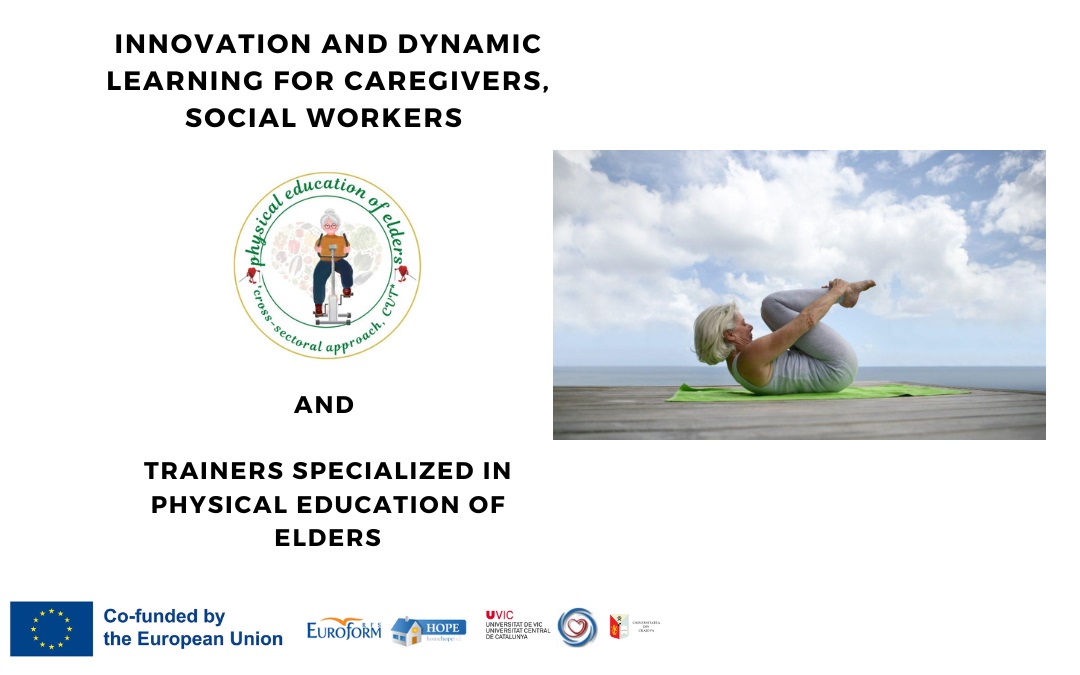As a partner of the project “Innovation and dynamic learning for healthcare workers, social workers and trainers specialized in physical education of the elderly, through an intersectoral approach of the fields of continuous professional training” (code of project 2022-1-RO01-KA220-VET-000089776), we are showcasing a part of our formative kit.
The first module of our course is titled “The Relevance of Physical Activity in Adult Life.”
This section discusses the impact of aging on health, with a particular focus on muscle mass loss. It defines terms such as physical activity, inactivity, and sedentary behavior and explores external and personal factors that influence physical activity in older adults.
Our course also presents the benefits of physical activity for older adults. This segment discusses the positive effects of physical activity on cardiovascular health, muscles, bones, balance, and cognition and emphasizes the importance of personalized exercise plans for preventing chronic diseases and maintaining well-being.
Designing effective physical activity programs includes personalized exercises, including aerobic, strength, flexibility, and balance training. The module places an emphasis on safety, gradual progression, professional guidance, warm-up, and cool-down.
Overcoming obstacles to physical activity, another part of the module presented, addresses common barriers to maintaining physical activity, such as time constraints, motivation, and misconceptions related to age.
Our course provides strategies such as goal setting, social support, time management, and fostering a positive mindset.
The last section of the module presents strategies for maintaining consistent, long-term commitment to physical activity. It highlights the role of social support, the environment, goal setting, progress tracking, and adaptability in ensuring the continuity of physical activity for a healthier aging.


Recent Comments